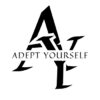🏫 All About ICSE – Indian Certificate of Secondary Education
📌 Introduction
The ICSE Board, conducted by the Council for the Indian School Certificate Examinations (CISCE), is known for its strong academic foundation, in-depth curriculum, and emphasis on English proficiency. It is a popular choice among students aiming for a well-rounded education in India and abroad.
🔍 What is ICSE?
ICSE stands for Indian Certificate of Secondary Education — an examination conducted by CISCE, a private, non-governmental board of school education in India.
✅ Key Highlights:
| Particular | Details |
|---|---|
| Board Name | ICSE (Indian Certificate of Secondary Education) |
| Conducted By | CISCE (Council for the Indian School Certificate Examinations) |
| Type | National-level private board |
| Established | 1958 (by Cambridge University, reformed in 1973) |
| Medium of Instruction | English |
| Grades Covered | Class 1 to 10 (ICSE) and 11–12 (ISC) |
| Official Website | cisce.org |
📘 ICSE Curriculum
The ICSE curriculum is comprehensive, application-based, and balanced, focusing on analytical skills, literature, and language proficiency.
Subjects Offered:
For Class 10 (ICSE):
- Group I (Compulsory): English, Second Language, History & Civics, Geography
- Group II: Science, Mathematics, Economics, Commercial Studies, etc.
- Group III: Arts, Home Science, Fashion Design, Technical Drawing, Yoga, etc.
For Class 12 (ISC):
- English (compulsory) + Electives in Science, Commerce, or Arts stream
🧠 ICSE vs CBSE – Key Differences
| Feature | ICSE | CBSE |
|---|---|---|
| Board Type | Private | Government |
| Medium of Instruction | English only | English and Hindi |
| Curriculum Focus | Literature, Language, Arts + Sciences | Science and Math-centric |
| Global Recognition | High (especially in UK/USA) | High (for Indian universities & exams) |
| Competitive Exam Focus | Less direct | Strong alignment with JEE/NEET/CUET |
📈 Assessment and Exams
ICSE follows a structured and project-based evaluation system.
- ICSE (Class 10) – Final board exam with 20% internal assessment for most subjects
- ISC (Class 12) – Evaluation based on written exam, practicals, and internal assessments
- Grading System: Marks out of 100, with a pass percentage of 35%
🌐 ICSE Digital Features
- Online Registration for Exams
- Results on the official portal
- Specimen Papers & Marking Schemes
- Digital Learning via e-books & reference platforms
🏅 Advantages of Studying in ICSE
| Advantage | Description |
|---|---|
| 🔤 Strong English Language Base | Helps in IELTS, TOEFL, foreign admissions |
| 🌍 International Recognition | Recognized by foreign universities |
| 🧠 Deep Understanding | Encourages conceptual learning and writing skills |
| 🎨 Holistic Curriculum | Balance of academics, arts, and co-curriculars |
| 📚 Project Work | Focus on application through assignments and internal assessments |
💼 Career & Competitive Exams
While ICSE is less directly aligned with JEE/NEET, it:
- Builds strong fundamentals in Science, Math, and English
- Prepares students well for SAT, ACT, IELTS, TOEFL, GRE, etc.
- Provides a solid foundation for humanities, law, commerce, and arts-related fields
📌 Conclusion
ICSE is ideal for students who:
- Want in-depth learning with a focus on language, projects, and balance
- Plan to study abroad or need a strong command of English
- Prefer a creative and well-rounded education model
💬 FAQs
Q1. Is ICSE harder than CBSE?
ICSE is considered more detailed and language-focused, but not necessarily harder — just different.
Q2. Is ICSE recognized in India and abroad?
Yes, ICSE is accepted for jobs, universities, and competitive exams across India and internationally.
Q3. Can ICSE students appear for NEET or JEE?
Yes, many ICSE students crack JEE/NEET. You may need extra coaching due to the different syllabus alignment.


